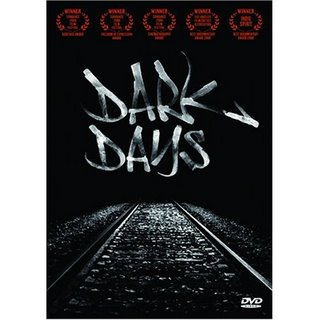From Tugboats to Polar Bears (2004, dir. Matt McCormick)
 From Tugboats to Polar Bears (2004, dir. Matt McCormick)
From Tugboats to Polar Bears (2004, dir. Matt McCormick)What Is It?: A collection of short experimental films by local filmmaker Matt McCormick.
What About It?: That they are short or that they are experimental should not dissuade you from these delightful films. They are moving, funny, beautiful and thought-provoking, and all without tasting like medicine. The Subconscious Art of Graffiti Removal is the big "hit" among these shorts -- and where the still above is taken from -- a fascinating study in the where's and the why's of Portland's extremely aggressive graffiti abatement program. That and the bold statement -- perhaps tongue-in-cheek, perhaps not -- that, subconsciously, the graffiti abaters are the logical extension of such abstract expressionists as Rothko and Hoffman. Narrated by the delightful Miranda July. Equally engaging is Towlines, a meditation on, and history of, the tugboat. That, and there are shots of pitching flying from the top of a silo and back again from Grounded that the Lost Classic is still daydreaming about.
Why Should I See It?: Because you never see short films and, really, you should. Not because they're good for you, but because they taste great. And, when you're done, go to Matt's website and check out the video to dearly departed Sleater Kinney's Jumpers.
What Else Is It Like?: The Vyrotonin Decision reminded the Lost Classic of a couple of Stan Brackhage's shorts, but otherwise we're not too sure. You tell us.
Reserve It at the Multnomah County Library
-- ddt/pdx





